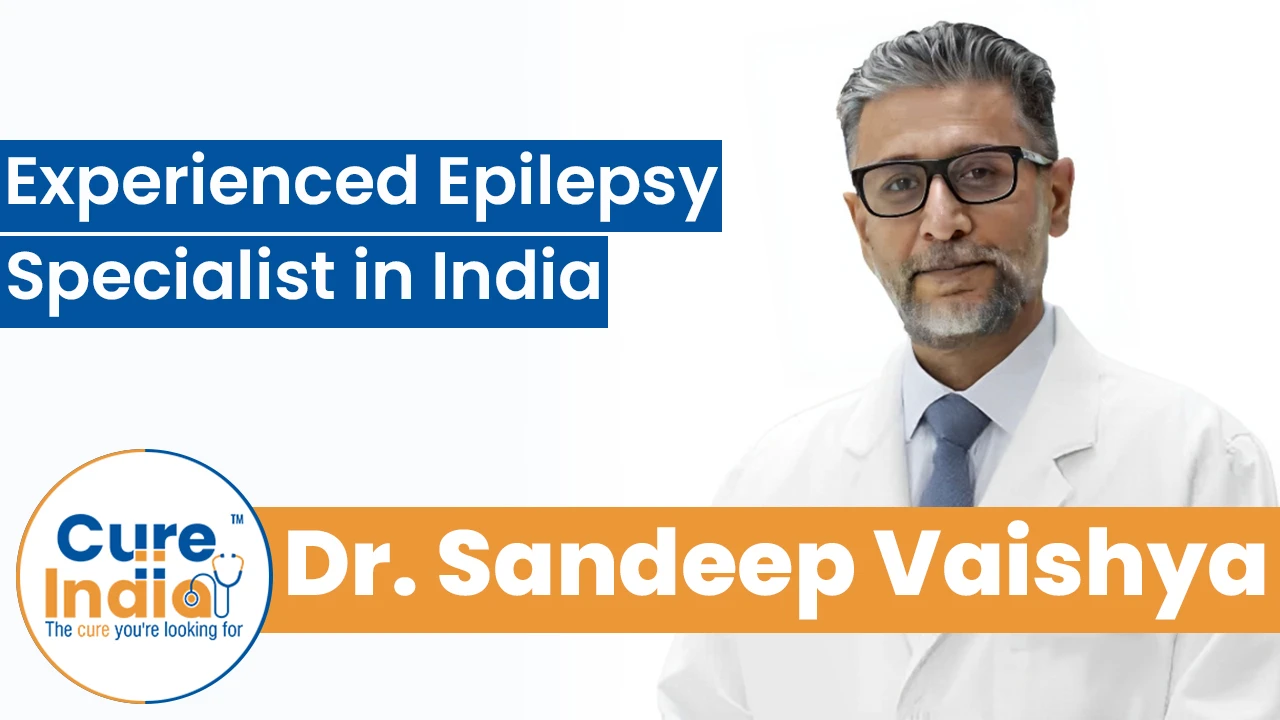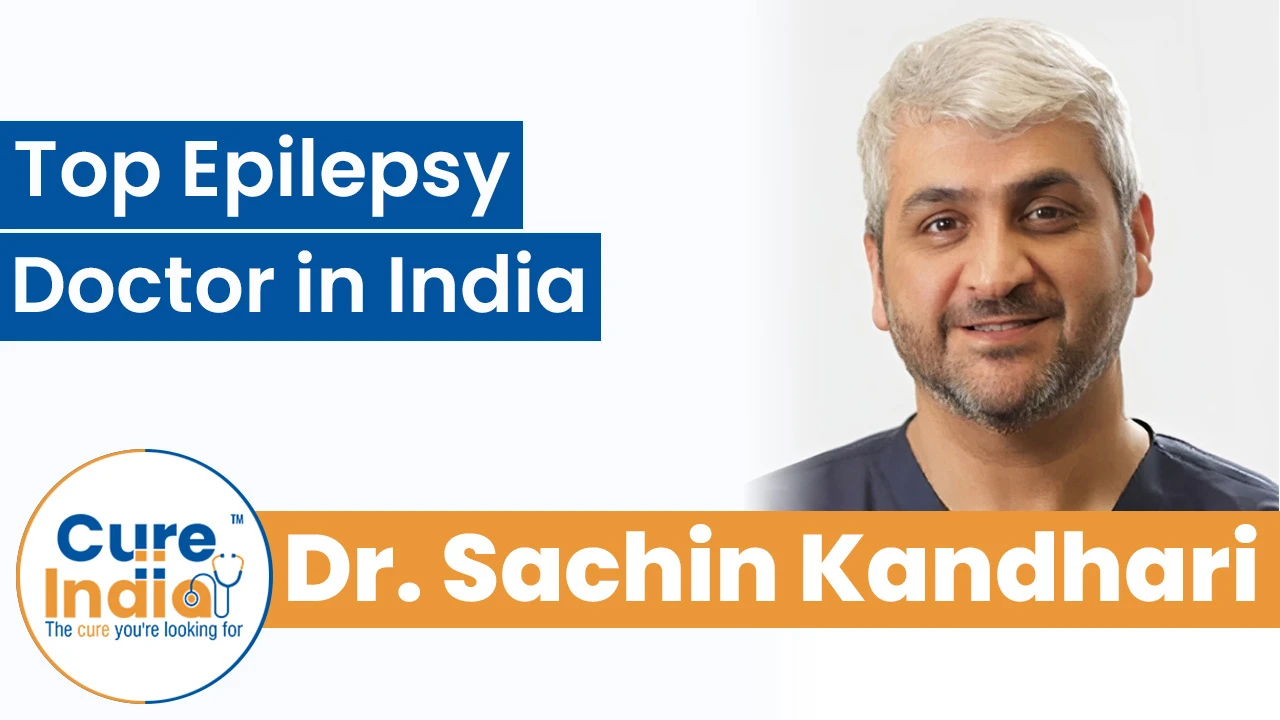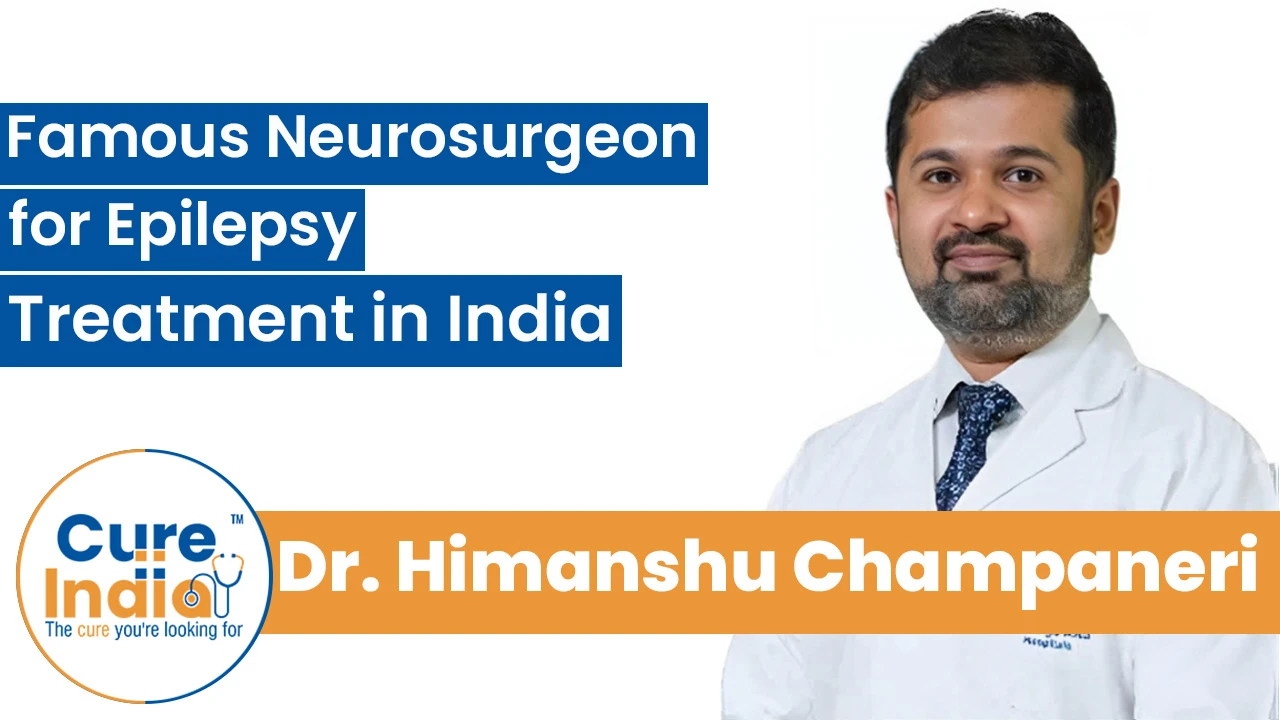

Epilepsy treatment in Africa can be very expensive with lots of waiting time. Because of this, Epilepsy patients from Africa choose to travel to other coutries to get Epilepsy treatment. One such country is India. India is the best country to get epilepsy operation for African patients. With highly-experienced epilepsy doctors and state-of-the-art clinics, India has the best epilepsy treatment for African patients.
Epilepsy is a neurological sickness characterized by recurrent, unpredictable seizures, affecting tens of millions internationally. When seizures happen despite medication, brain operation for epilepsy becomes a feasible choice. The epilepsy treatment in India targets to become aware of and deal with the specific brain areas liable for producing seizures. Precise preoperative tests, consisting of neurological reviews and advanced imaging, guide surgical planning. A successful epilepsy operation can considerably improve seizure manipulation and decorate the high quality of life for individuals with drug-resistant epilepsy.
Epilepsy treatment is a procedure that removes an area of the brain where seizures occur. Epilepsy operation is most effective when seizures always occur in a single location in the brain. Epilepsy surgery is not the first line of treatment. But it might be an option when at least two anti-seizure medicines have failed to control seizures. You might need several tests before surgery to find out whether epilepsy treatment is an option and what type of surgery to do.
Anyone whose epilepsy seriously impairs their quality of life and whose seizures, which may be focal in origin and persist despite treatment with antiepileptic medicines (AEDs), warrants an examination for epilepsy operation.
Seizures can have a variety of characteristics, depending on the part of the brain affected and the extent of the disruption. There are transient epilepsy symptoms that can include loss of awareness or consciousness, as well as problems with mobility, mood, taste, hearing, and vision, as well as other cognitive abilities.
Patients with epilepsy frequently experience psychological disorders like worry and sadness in addition to a higher frequency of physical issues including fractures and bruising from seizure-related traumas. In a similar vein, individuals with epilepsy have a three times greater chance of dying before their time than the general population, with low- and middle-income nations as well as rural locations having the highest rates of early mortality. Hence procedures like hemispherectomy surgery are of the utmost importance for them.
Epilepsy is a neurological disease characterised by the occurrence of recurrent, unpredictable seizures. The reasons for epilepsy may be diverse, often stemming from a combination of genetic and environmental elements. In a few instances, there can be a clean identifiable cause, even in others, the origins continue to be elusive.

Genetic factors play a tremendous function, with specific gene mutations growing susceptibility to seizures. Additionally, structural abnormalities in the mind, consisting of tumours, strokes, or serious accidents, can disrupt everyday neuronal pastime and trigger seizures. Infections like meningitis or encephalitis, which affect the brain, can also contribute to the improvement of epilepsy. Medications and brain operation for epilepsy can eliminate this serious disorder from your body.
Early mind damage, both throughout prenatal improvement or childbirth, may additionally lead to epilepsy later in life. Other chance elements include neurodegenerative problems, metabolic imbalances, and exposure to pollutants or materials during pregnancy. A family record of epilepsy can also increase the probability of growing the situation.
While the precise cause varies among individuals, the underlying mechanism frequently entails unusual electric pulses inside the brain. Understanding the various causes of epilepsy is important for correct diagnosis and powerful control, as it allows tailor-made remedy strategies primarily based on the unique factors contributing to everybody's seizures.
Determining the candidacy for epilepsy treatment in India, in particular interventions like epilepsy operation, involves a complete assessment to become aware of people who can also benefit maximum. Candidates for epilepsy interventions are usually those with drug-resistant seizures, meaning that conventional medicines have not accurately manipulated their circumstances. The process involves an intensive assessment of clinical records, neurological examinations, neuroimaging research, and continuous monitoring of mind hobby via electroencephalograms (EEG).

Ideal candidates for epilepsy treatment in India are people with well-defined seizure recognition that can be adequately removed without causing widespread neurological deficits. This requires unique localization of the seizure starting place, frequently aided by way of superior imaging strategies like magnetic resonance imaging (MRI) and positron emission tomography (PET). Additionally, candidates ought to have practical expectancies and be inclined to commit to postoperative care and comply with them.
When the epilepsy symptoms start in a human, it may take some time to fully comprehend the magnitude of the seizure; nevertheless, diagnostic testing and a thorough medical assessment can help. Diagnostic tests and a physical examination are used to diagnose seizures. In the course of the examination, the doctor asks when the seizures started and gets the child's and family's whole medical history. Neurological issues may be the cause of seizures, necessitating additional medical monitoring.
Among the diagnostic tests that could be performed are:
■ Blood examinations
■ EEG: Electrodes are affixed to the scalp to capture the continuous electrical activity of the brain during an electroencephalogram (EEG).
■ MRI: Large magnets, radiofrequency technology, and a computer are used in magnetic resonance imaging (MRI), a diagnostic technique that creates finely detailed images of organs.
■ CT or CAT scan: A computed tomography scan, often known as a CT or CAT scan, is a diagnostic imaging technique that creates horizontal or axial images of the body, sometimes referred to as slices by combining X-rays and computer technology.
■ Spinal tap: A lumbar puncture, often known as a spinal tap, involves inserting a specific needle into the spinal canal in the lower back. This region encompasses the spinal cord. It is thus possible to monitor the pressure inside the brain and spinal canal.
■ WADA test epilepsy: If you have epilepsy and are considering brain surgery, your healthcare provider may do the WADA test. The Wada test epilepsy determines which side of your brain your language and memory abilities are located.
Anti-seizure drugs, surgery, and special diets are used for epilepsy treatment in India, frequently in combination with one another.
About 60% to 70% of epileptic individuals can reduce their seizure frequency with anti-seizure drugs. Treatment for anti-seizures with medicine is customised. To determine which medication(s), dosage(s), or combination(s) best controls your seizures, your healthcare professional may try all of them.
The two most popular diets that are occasionally advised for individuals with epilepsy are the modified Atkins diet and the ketogenic diet, which are low in carbs, moderate in protein, and high in fat. For youngsters who are not candidates for surgery and for whom medication proved ineffective, diets are typically advised.
When more than two anti-seizure medication trials are unable to control your seizures, epilepsy surgery may be a safe and viable course of treatment. If anti-seizure drugs aren't controlling your seizures, it's crucial to get tested at an epilepsy centre to find out if you qualify for epilepsy surgery.
Options for surgery include hemispherectomy surgery and stereotactic radiosurgery, which destroys aberrant brain tissue specifically, disconnection, which cuts fibre bundles connecting different parts of the brain, surgical resection, which removes abnormal tissue, and neuromodulation device implantation.
Surgery alternatives for epilepsy are considered whilst seizures remain out of control despite the most effective scientific management. The intention of brain operation for epilepsy is to become aware of and deal with the precise mind regions liable for initiating seizures. Here are key surgical options:
Involves putting off the portion of the mind where seizures originate (seizure consciousness). Common techniques include right temporal lobe lobectomy (eliminating a lobe) or lesionectomy (getting rid of a selected mind lesion).
Disconnects the corpus callosum, the bundle of nerve fibres connecting the brain hemispheres, to stop your seizure occurrences.
Interrupts the pathways through which seizures unfold without getting rid of mind tissue.
The vagus nerve stimulation surgery involves implanting a device that stimulates the vagus nerve, modulating brain interest to lessen seizures.
Implants electrodes directly into the brain vicinity producing seizures. The device monitors and responds with electric stimulation to disrupt seizure hobbies.
Emerging choice regarding implanted electrodes in unique mind areas, modulating neural activity to govern seizures.
Epilepsy operation calls for careful preoperative assessment to precisely pick out the seizure recognition and reduce potential dangers, making sure the most appropriate candidates go through these interventions for ultimate results.

Epilepsy's treatment requires special knowledge and skills from experienced neurologists and epilepsy specialists. CureIndia helps you find the best epilepsy specialists in India for your treatment. The experts in India have years of experience and the necessary expertise to provide effective management and treatment of Epilepsy. Let us introduce you to the leading epilepsy specialists in India.





The Epilepsy treatment in India helps manage epilepsy and reduces the occurances of seizures in parkison's patients. The cost of epilepsy treatment in India is:
| Treatment | Cost in India | Stay in India |
|---|---|---|
| Epilepsy Treatment in India | $8,500 | 2 Weeks |
Preparation for epilepsy treatment for seizures entails a thorough evaluation to pick out the seizure focus and make sure the affected person is the precise candidate. Before the surgery, special neurological evaluations, neuroimaging research, and non-stop electroencephalogram (EEG) tracking are carried out. Psychological reviews suggest gauging the patient's capacity to cope with surgical treatment and postoperative changes.

During the surgical treatment, patients are given general anaesthesia, and the surgical crew makes use of advanced imaging strategies for particular localization and elimination of seizure awareness. Intraoperative EEG monitoring assists in confirming the achievement of the method.
Postoperatively, sufferers go through a recuperation period with tracking in an epilepsy tracking unit. Close observation guarantees early detection of any complications. Medication modifications may occur, and sufferers receive comprehensive postoperative care, which includes rehabilitation and counselling to aid in adjusting to capacity lifestyle modifications.
Regular follow-ups are crucial to screen seizure manipulation, modify medicinal drugs if vital, and provide ongoing guidance for the affected person's universal well-being. The postoperative duration performs a pivotal position inside the lengthy-term fulfilment and great of lifestyle upgrades associated with epilepsy surgical treatment. Learn more about the top epilepsy treatment clinics in India here
Recovery after an epilepsy operation includes a careful and monitored process. Patients generally stay in the hospital for observation, ensuring proper restoration and handling any instantaneous postoperative issues. Medication adjustments may also occur, and rehabilitation, including physical and occupational therapy, might be encouraged.
Postoperative care additionally includes a mental guide to assist patients in adapting to potential lifestyle adjustments. Regular catchups with healthcare professionals are crucial to reveal seizure manipulation, address any issues, and optimize the overall restoration technique.
